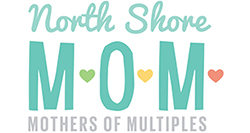 |
Parents who fear that the inculcation of moral values will rob children of the freedom to choose their own beliefs are likely to produce children who lack a moral compass. Children of parents who express their love by indulging their children’s wishes tend to become narcissistic and self-focused. Parents who protect their children from experiencing negative emotions tend to produce children who are unable to cope with emotional stress. Adults who worry that too much direction or critical feedback will squash their child’s creativity often fail to provide the very direction that a child needs to develop the creative skills the parent seeks to promote. Thus, while child-centered parenting has noble origins, it breeds a suite of unanticipated consequences.
How can parents both be sensitive to a child’s emotional well-being, while at the same time promoting the emotional regulation, moral development and a sense of purpose and achievement? Although these two sets of goals may seem to be opposing, in fact, they go together quite well.
The trick is to move beyond both child-centered and adult-centered ways of thinking about parenting. We need a view – one that brings together central insights of traditional (adult-centered) and progressive (child-centered) modes of parenting while discarding unwanted elements from both. Happily, we already know how to do this, and we’ve known it for a very long time. Decades of research and hundreds of studies clearly document the importance of both empathic sensitivity and active guidance in fostering the development of responsible, emotionally secure, socially skilled children.
In the 1960s, Diana Baumrind identified three styles of parenting. Authoritarian parents maintain and enforce high maturity demands for their children, but are neither highly communicative nor empathically nurturing with their children. In contrast, permissive parents are highly communicative and nurturing with their children, yet do not attempt to direct their children in terms of high maturity demands. (What I’ve called child-centered parenting shares much in common with permissive or indulgent parenting). Authoritative parents not only hold and enforce high maturity demands for the children, but they are also highly nurturing and communicative with their children. Children of authoritative parents proved to be vital, socially responsible and self-directed than children of either authoritarian or permissive parents.
Authoritative parents provide children with both high levels of structured direction and high levels of emotional support. There is no contradiction between these values. In fact, the combination of the two is a tried and true formula for parenting success.

















